Collateral Beauty
 for thematic elements and brief strong language.
for thematic elements and brief strong language.
Reviewed by: Curtis McParland
CONTRIBUTOR
| Moral Rating: | Average |
| Moviemaking Quality: |
|
| Primary Audience: | Adults |
| Genre: | Drama |
| Length: | 1 hr. 34 min. |
| Year of Release: | 2016 |
| USA Release: |
December 16, 2016 (wide—3,028 theaters) DVD: March 14, 2017 |
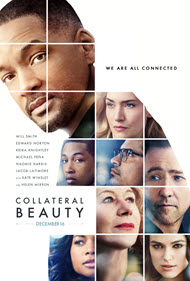


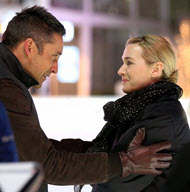
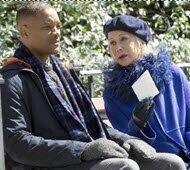
Emotional trauma of the death of a family’s young child
Effect of major trauma on marriage
Importance of supporting people who are grieving
Where did CANCER come from? Answer
FORNICATION and ADULTERY in the Bible
PURITY—Should I save sex for marriage? Answer
affect of adultery on families and marriages

DEPRESSION—Are there biblical examples of depression and how to deal with it? Answer
What should a Christian do if overwhelmed with depression? Answer

Why does God allow innocent people to suffer? Answer
What about the issue of suffering? Doesn’t this prove that there is no God and that we are on our own? Answer
Does God feel our pain? Answer
ORIGIN OF BAD—How did bad things come about? Answer

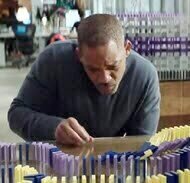

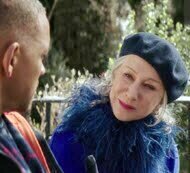
| Featuring |
|---|
|
Will Smith … Howard Inlet Keira Knightley … Aimee Moore Kate Winslet … Claire Edward Norton … Whit Yardsham Naomie Harris … Madeleine Helen Mirren … Brigitte Michael Peña (Michael Pena) … Simon Kylie Rogers … Allison Yardsham See all » |
| Director |
| David Frankel — “Hope Springs” (2012), “Marley and Me” (2008), “The Devil Wears Prada” (2006) |
| Producer |
|
PalmStar Media Likely Story See all » |
| Distributor |
Christmastime. A time for peace, joy, and love for many. However, Howard Inlet (Will Smith) is one of the many people who struggle to find hope and meaning in life, especially during this special time of year. Even Howard’s friends, Whit (Edward Norton), Claire (Kate Winslet), and Simon (Michael Peña) struggle to make ends meet, as they work under him at a New York advertising firm. Three years after the passing of his daughter, Olivia, Howard still finds himself withdrawn from any form of social life. He keeps to himself, doesn’t pay his rent on time, and his performance at work is sorely lacking.
Whit, Claire, and Simon are very concerned about Howard and aim to do something about it, especially since their employment may soon be at stake. As Howard lays out trails of dominoes in his office, the three come together as both concerned friends and co-workers and devise a plan to help bring Howard back to his once normal self. Things are much more complicated than they may appear, though, as it’s discovered Howard is writing letters. Letters to things, not people. More specifically, he writes to what the film calls “The three abstractions in life”: “Death,” “Love,” and “Time.” Howard seeks answers. He seeks wisdom. He seeks peace. But as Howard writes letters and asks questions, he receives answers in most unexpected ways.
“Collateral Beauty” is a film that attempts to share the beauty in life. However, one thing “Collateral Beauty” doesn’t do well is send a clear message or get its point across. The story, itself, is pretty simple and straightforward, but all the layers underneath are unclear and quite messy. Howard is a lost and depressed man. We get it. Whit, Claire, and Simon want to help Howard and bring him back to normal, should I say “meaningful” life. Sure, we still get it. But when Howard physically encounters “Death,” “Love,” and “Time,” all these life definitions and answers given to him are not clear and could very well be misunderstood.
The film itself does flow quite smoothly, thanks to veteran director David Frankel, but his execution still feels rather poor, due to a flawed script with weak dialog. “Collateral Beauty” does contain some great acting, thanks to its powerful leads, and it is wonderfully shot, as we see some beautiful scenes of Christmastime in New York. The message of “Collateral Beauty,” I somewhat understood. But the point this film was trying to make, well, not so much.
“Collateral Beauty” is a rather clean film, as there is only one brief sexual reference, when a woman accuses a man of sexualizing the true meaning of love. There is mention of a man cheating on his now divorced wife (which he regrets), and his young daughter accuses him of being a “philanderer.” She also tells her father that she hates him, but they later reconcile. There is also mention of someone being “sexy.” A woman wears a low cut top in one scene.
The language is the largest portion of concern, as we hear one f-word, 10 s-words, about four abuses of God’s name, and one soft spoken/muffled abuse of Jesus’ name. H***, b**ch, and p*ss are said a few times combined, and the stand in “fricking” pops up once, in addition to two uses of the word “sucks.”
The closest we get to violence is when Howard rides his bike toward rushes of city traffic, apparently not caring if he gets hit or not, and, in another scene, he purposefully knocks a guy off his skateboard. Howard’s temper may come off as a bit violent, as he launches the skateboard across the street. One character vomits over a toilet (nothing graphic is shown), and we see blood on a towel he’s holding.
“For I know the plans I have for you, declares the Lord, plans for welfare and not for evil, to give you a future and a hope.” —Jeremiah 29:11 (ESV)
There is only one brief mention of God and one other of religion, which is pretty much viewed as a joke by one character. Heaven is also briefly mentioned by a character as she grieves the lost of her child. The film does, however, contain a handful of positive themes, including the value of family and friendship and what it means to truly love. These themes do feel a bit muddled at times, though, as some may question if Howard’s friends really do care about his well-being or if they just care about their jobs and their personal lives. This was not made especially clear in the film and becomes quite problematic, since true love is one of the main themes. As John 15:13 says, “Greater love has no one than this, that someone lay down his life for his friends.” Although Whit, Claire, and Simon are making huge sacrifices in both their personal and professional lives to help Howard, I found it quite hard to discern if they were sacrificing solely for Howard’s sake or for their own self-gain.
“For to me to live is Christ, and to die is gain.” —Philippians 1:21
“Collateral Beauty” does do a pretty good job of defining what it means to reconcile with others and one’s self. After a character admits to his wrongdoing of cheating on his wife, he takes the first step of seeking forgiveness and reconciling with his daughter. Even Howard begins to take a step towards self reconciliation, as he begins to embrace that everything in life happens for a reason. One additional character shares that she and her ex-husband never fell out of love, even after going through a painful loss and divorce. Although they lost contact, she still has faith that one day they would somehow be reunited.
“There is no fear in love, but perfect love casts out fear. For fear has to do with punishment, and whoever fears has not been perfected in love.” —1 John 4:18
I find it rather difficult to define “Collateral Beauty.” It certainly is an ambitious film that attempts to share how we as humans are all connected in life. It also touches on some tough material: grief, loss, depression, divorce, and guilt, just to name a few. It isn’t a Christian film by any means. In fact, its message is rather humanistic, as the main characters seek hope, love, peace, and reconciliation in all of the wrong things. They look toward people, other fallible human beings for all of life’s answers, instead of the all loving God. Perhaps “Collateral Beauty” feels so lost in its meaning because the real answers to life cannot be found through even the wisest of humans. They can only be found through the grace of God. The film may ask some pretty big questions about life, but it does not give any clear, definitive answers. At film’s end, “Collateral Beauty” nearly exhausts all options when it comes defining what it truly means to live. But John 6:35 gives us a solid answer to the question of life. As Jesus said, “I am the bread of life; whoever comes to me shall not hunger, and whoever believes in me shall never thirst.” And Ephesians 2:8 later shares, “For by grace you have been saved through faith. And this is not your own doing; it is the gift of God.” Grace. God’s grace. What a beautiful gift that is.
“He saved us, not because of works done by us in righteousness, but according to his own mercy, by the washing of regeneration and renewal of the Holy Spirit…” —Titus 3:5
Violence: Minor / Profanity: Moderate to Heavy—f-word (1), O.M.G. (2), “My G*d” (2), “Oh G*d” (2), “h*ll” (3), s-words (10) / Sex/Nudity: Mild
See list of Relevant Issues—questions-and-answers.


Even though the movie was about “love,” “death,” and “time,” it was really about how we deal with those things in our lives. It is ourselves that have the power to change how we perceive things.See all »
Moral rating: Good / Moviemaking quality: 5
PLEASE share your observations and insights to be posted here.





My Ratings: Moral rating: Better than Average / Moviemaking quality: 5